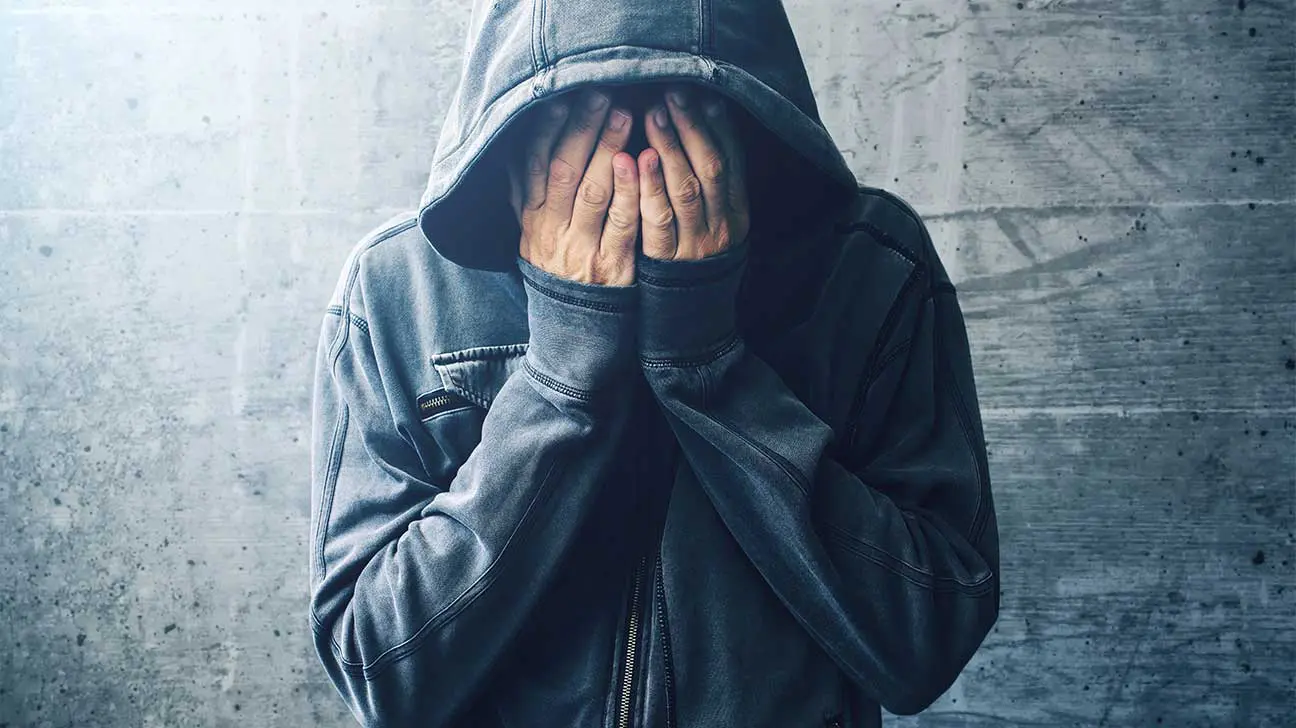
It may be difficult or even impossible to understand why a friend or family member abuses heroin.
From the outside, the destructive effects of heroin are apparent. The addicted person may isolate themselves, lose jobs, steal money, and engage in other reckless activities.
However, heroin addiction is less likely to be attributed to recreational abuse than other drugs such as marijuana, amphetamines, ecstasy, or other prescription drugs.
It is more often the case that a person who abuses heroin has underlying health conditions or psychiatric disorders that precipitate drug use.
How Heroin Use Starts: A Timeline
1. First Use
Heroin directly affects chemical opioid receptors in the brain that lead to a release of the feel-good neurotransmitter, dopamine.
2. The Heroin High
The rush of pleasurable emotions caused by dopamine may drive a person to abuse the drug after just one use, in spite of adverse effects and the high risks of overdose death.
3. Continued Heroin Abuse
Over time, and with habitual abuse, it becomes harder for a person to stop heroin use without help.
4. Heroin Addiction And Dependence
Heroin dependence is often established with regular abuse. The person’s brain and body may require black tar heroin, or other prescription opioids, like fentanyl or oxycontin, to regulate itself.
A person with a heroin addiction may simply be unable to stop heroin use without medical intervention.
Reasons People Use Heroin
There are several reasons why an individual may develop an addiction to heroin.
Heroin Is Highly Addictive
Heroin is highly addictive and often leads to chronic addiction, even with just one or a few uses.
Heroin often comes in brown powder form and may be injected, smoked, or administered by snorting the drug.
With continued use, an individual’s brain and body quickly become dependent on its pleasurable effects or “highs.”
To Self-Medicate Mental Illness
Heroin use has a high co-morbid association with depression and anxiety.
People who abuse heroin are often using the drug as a means to avoid:
- pain
- emotional discomfort
- underlying symptoms of mental illness
For Its Euphoric Effects
Heroin is an opiate drug that causes dopamine release in the brain. The release of this neurotransmitter creates a rush of pleasurable feelings.
For Pain Relief
Heroin relieves both emotional and physical pain. This potent drug has pain-killer properties that reduce discomfort from chronic injuries and mental distress.
A Sense Of Calm And Sedation
Heroin acts as a central nervous system depressant that reduces activity in the brain, leading to sedation.
Withdrawal Avoidance
When a person stops using heroin after becoming chemically dependent and addicted, uncomfortable withdrawal symptoms begin to surface, causing significant distress.
Triggers For Heroin Use
Triggers refer to the events and emotions associated with a person’s drug use and may cause relapse. Triggers can be emotional, environmental, or socially based.
When a person addicted to heroin experiences a trigger of heroin use, it can lead to a flood of memories and impulses that drive them to return to drug use.
The main triggers of heroin abuse include:
- Environment – locations where a person used heroin:
- home or personal neighborhood
- public places, like bars or hotels
- areas associated with buying or using drugs
- Social – social circumstances that create a desire to use drugs:
- loss of a relationship, job, or opportunity
- contact with an abusive person
- conflicts or arguments
- Emotional – emotions associated with the desire to use drugs:
- depression
- loneliness
- guilt
- anxiety
- fear
When an individual experiences a trigger, it may be the catalyst for intense memories and associations with heroin.
Often, heroin has replaced other healthy coping mechanisms and becomes the outlet for the individual’s negative emotions or stress.
Without treatment, a person with a heroin addiction may remain caught in a cycle of drug abuse and unhealthy coping mechanisms.
How Addiction Leads To A Cycle Of Substance Abuse
Habitual heroin use can result in a cycle of addiction. People with drug addiction often fall into patterns of repetitive emotions, thoughts, and behaviors associated with addiction.
A person may feel stuck between drug use and uncomfortable withdrawal symptoms that develop when stopping use.
A cycle of drug abuse can be characterized by the individual’s patterns of:
- environmental, emotional, and social triggers or pain that leads to drug use
- obsessing over drug usage to alleviate discomfort
- drug use and participating in other illegal activities
- guilt, fear, shame, and remorse over drug use
- withdrawal symptoms
- unsuccessful attempts at sobriety
The cycle of abuse will continue until a person receives treatment, detoxes from heroin, and is finally able to live drug-free outside repetitive patterns that drive substance abuse.
Getting Help For Heroin Addiction
Heroin is a highly addictive drug.
Addiction to it often requires aggressive substance abuse treatment in order to:
- break the cycle of addiction
- avert medical crises like heroin overdoses
- achieve recovery
Treating heroin addiction must support the person from detox and withdrawal, into the latter stages of recovery in order to maintain sobriety.
Treatment often involves qualified medical advice and may include naloxone or methadone treatment to support opiate withdrawal.
If you or a loved one has a heroin addiction, or if you have questions about the rehab programs available for heroin addiction, please connect with an addiction specialist today.
Addiction Resource aims to provide only the most current, accurate information in regards to addiction and addiction treatment, which means we only reference the most credible sources available.
These include peer-reviewed journals, government entities and academic institutions, and leaders in addiction healthcare and advocacy. Learn more about how we safeguard our content by viewing our editorial policy.
- Science Direct — Gender and comorbidity among individuals with opioid use disorders in the NESARC study
https://www.sciencedirect.com/science/article/abs/pii/S0306460309000276?via%3Dihub - National Center for Biotechnology Information — Treatment of heroin addiction
https://www.ncbi.nlm.nih.gov/pmc/articles/PMC1972884/ - U.S. National Library of Medicine: Medline Plus — Heroin
https://medlineplus.gov/heroin.html


